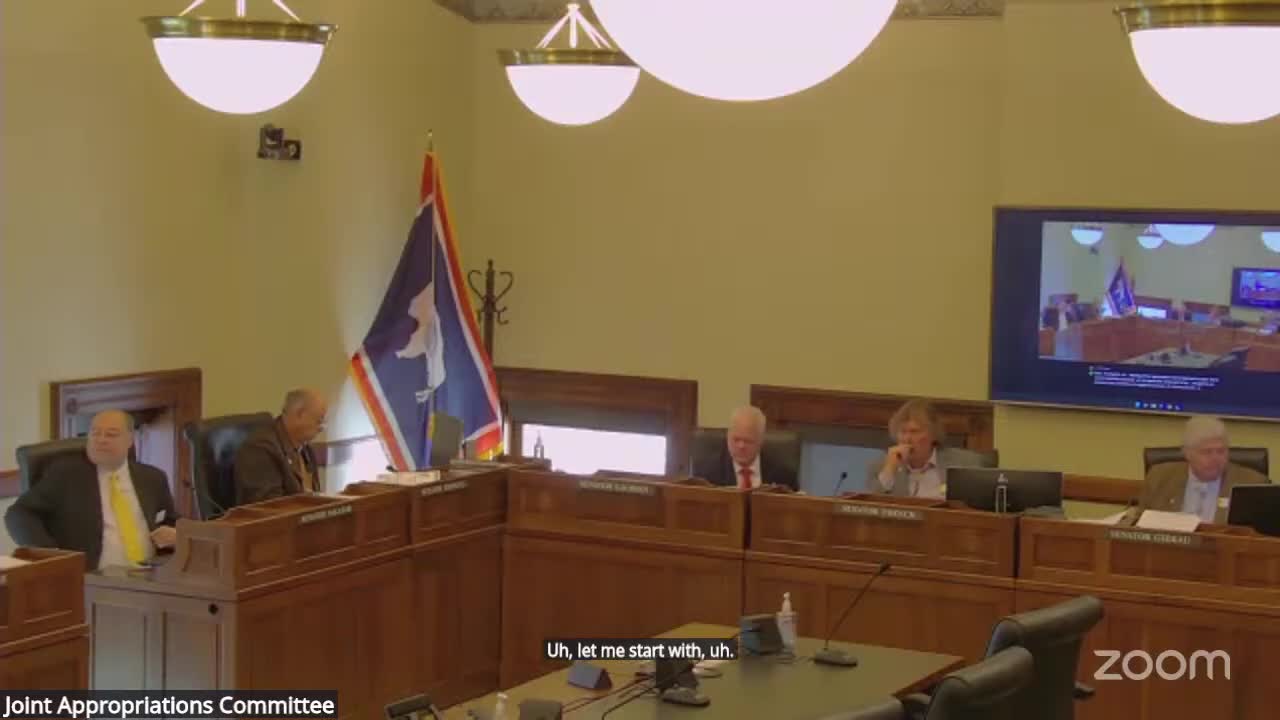Appropriations committee requests bill drafts to expand "smokebuster" capacity and create a state wildland suppression module
Get AI-powered insights, summaries, and transcripts
Subscribe
Summary
The Joint Appropriations Committee asked staff on Oct. 31 to draft bills to add two inmate module leader positions to the Smokebuster program and to create one 12-person wildland fire suppression module, as part of broader efforts to expand statewide ground capacity.
The Joint Appropriations Committee on Oct. 31 asked legislative staff to prepare multiple bill drafts aimed at expanding Wyoming's ground suppression capacity.
Representative John Smith (requesting the draft on behalf of the committee) asked LSO to draft a bill to divert 5.6% of the statewide 4% sales-and-use tax (the so-called Madden distribution) to the Office of State Lands and Investments for distribution to cities, towns and counties under the existing distribution formula; committee staff recorded the request for legislative drafting.
Representative Joel Harrelson moved a bill draft to authorize two additional inmate module leader FTEs for the Office of State Lands and Investments, working with State Forestry and the Department of Corrections. The proposal called for a phased implementation: the first FTE effective 07/01/2026 and the second effective 07/01/2027. The draft request included a placeholder total amount of $750,000 with $500,000 identified as a one-time authorization to establish the positions and training capacity. The stated legislative intent was to build bench depth to support an additional Smokebuster hand crew and to create promotion pathways into state forestry positions.
Representative Angelus requested a separate bill draft to create one statewide wildland fire suppression module (described in committee materials as a 12-person module with two full-time positions and ten seasonal positions). The committee recorded an estimated cost of $1,580,000 with $500,000 as a one-time expense; staff were asked to coordinate with State Forestry to finalize language and calculations.
Committee members voiced unanimous or no-objection acceptance of these bill-draft requests on the record. Co-chair Baer and others emphasized the intent: grow ground capacity to match the expanded aviation program while maintaining attention to long-term workforce costs and benefit competitiveness with federal agencies.
Why this matters: The committee framed these drafts as an initial, measured investment in ground capacity. Members noted high turnover in State Forestry and the importance of building a sustainable local firefighting workforce rather than relying solely on federal or out-of-state mutual aid.
